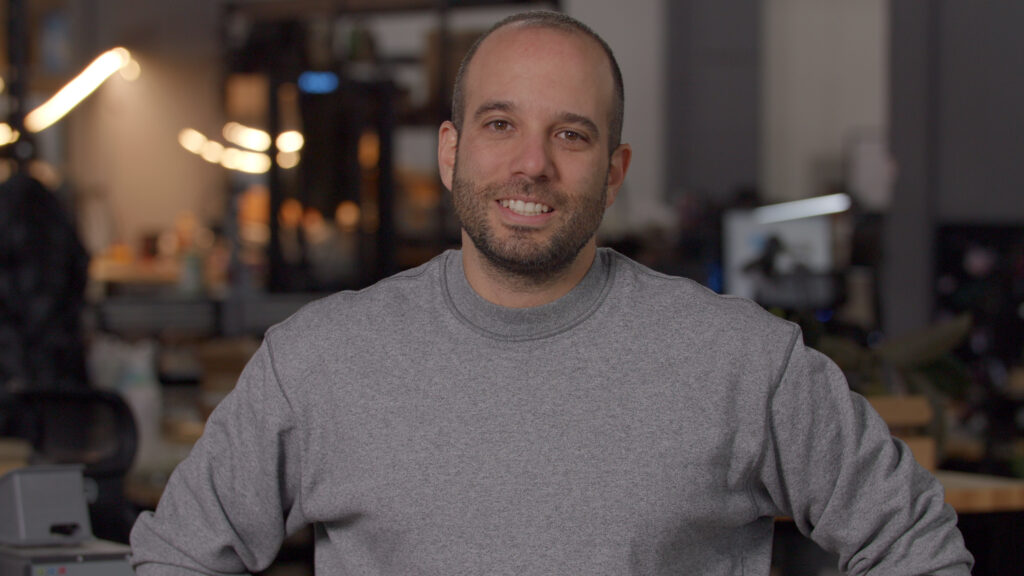Dr. Miguel Modestino is a professor of Chemical Engineering at NYU’s Tandon School of Engineering and the Director of their Sustainable Engineering Initiative. Miguel is spending his university sabbatical at HAX’s flagship office in Newark, where there are 25 hard tech startups currently working side-by-side with the HAX team. We talked to him about how the HAX experience compares to university research and graduate programs, and what universities should learn from the HAX approach.

What’s your area of expertise?
At NYU, my research group focuses on electrochemical manufacturing technologies – everything from more efficient green hydrogen generation to the production of molecules relevant for petrochemical manufacturing, like ethylene and other polymer precursors.
Why did you choose to join HAX for your sabbatical?
In my lab, we try to solve some of the biggest challenges that humanity faces, like climate change and challenges in human health. We think deeply about translating potential solutions from our university labs out into the market.
I had a one semester sabbatical, so it was natural to come to a place that not only funds, but also helps accelerate, early stage startups. I think there is a tremendous opportunity for collaborations between universities and venture-backed, startup development programs like SOSV’s HAX.
How is your time at HAX different from a “typical” academic sabbatical?
Usually people will go to a different university and embed themselves in a research group that has a slightly different set of skills. They’ll learn a particular experimental technique and bring that back to their own group, or perhaps learn about a different research area.
At HAX, I’m not focused on academic research. My experience is really helping me understand the translational aspect of my work at the university in a way that hopefully can help us be more efficient in the future.
One of the great things about being here at HAX is the breadth of different technologies, different companies, different sectors that come through the door. It makes me realize how challenging the HAX team’s job is!
What do your days look like at HAX?
I’m basically doing three here.
First, I’m helping the HAX team with technical diligence on companies. Second, I’ve also been helping some of the entrepreneurs working in areas relevant to my research. I’m helping them overcome technical barriers, and also connecting them with students that could be potential hires.
Third, I’ve been helping the HAX team develop their investment thesis around critical minerals, which is an interesting, emerging area where electrochemical engineering can play a role. There’s not much academic research on it, but I can certainly see many different opportunities to implement the same tools that we use in chemical manufacturing for critical mineral processing and discovery.
While at HAX, what has surprised you the most?
I think the most surprising thing, and this is my own naivete, is how hard the job of the HAX team is. When you are in the university, you’re in this little bubble where we all resonate. As professors, we tend to think that our job is really hard, and that we know almost everything about our fields!
I actually found the job of the HAX team to be much harder! People here have to be extremely smart to analyze the massive numbers of prospective companies that come through the funnel. They’re not just weighing a prospective startup’s technology, they have to weigh the founding team and the historical moment. I didn’t fully grasp the level of complexity until I was embedded here and saw it firsthand.
How can academia better support translation of innovation to the market?
I think it’s universally true that faculty in engineering want to work on societally relevant problems. But it’s hard to identify those problems. Typically, scientists influence the research priorities of other scientists. You get waves of people working in one direction because an important scientist said that was important. But it might be completely disconnected from the market.
